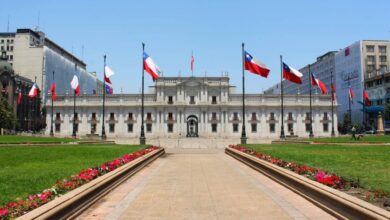The Venezuelan refugees
The citizens of the country with the world’s largest proven oil reserves, now experience, for the very first time, what being a refugee is like

The clock ticks 4 o’clock at the operating room and Dr. Daniela Martinez is prepared to remove the tumor off Mrs. Maria’s body. It is a tough surgery but she feels she can deal with it. After so many years of studies and practices at the General Hospital, deep in her heart Dr Martinez knows she is ready for this. Even though it is extremely hard to find the supplies in a country that sunk in the shortage of medicines, after a few hours, it was finally possible to complete a surgery that could potentially save the life of a lady who reminds Dr Martinez to her grandmother – a devoted woman who raised her.
She woke up to what is now her reality, a job in a 30 meter room where she serves fast food to tourists who are passing by in a restaurant located in a border crossing between Chile and Argentina “Los Libertadores”. She’s a waitress now. The pay she gets is far away from what a doctor can earn, but this is the place that gives her sustenance while she’s trying to legalize her migratory status in Chile, the country where she actually lives.
The spiraling inflation, widespread shortages, and rampant violence are some of the many problems that force countless youth professionals as Daniela to run away from the embattled government of President Nicolas Maduro to other countries around the world. It is a depressing and inevitable reality, where teachers have become drivers, doctors have become waiters, engineers have become housekeepers and so many others professionals with advanced degrees who are also struggling in Panama, Argentina, Colombia, Spain, and the US.
The Venezuelan migrants’ aged between 20 to 35 have to learn to down their standards of works if they want to settle down in another country. They changed the scrounging up satchels of cash to pay for lunch and waiting hours in lines to scour barren supermarket shelves for a better life.
The economic and political crisis in Venezuela has intensified since 2016 and the country that was once the promised land of Latin America is currently suffering a wave of violence as a result of the protests against the government, and more than 120 people have been killed since April this year.
As said by the official Chilean figures, between January and July 2017, 64.516 Venezuelans crossed through the different border crossings, representing a 131% increase over the same period of 2016. According to the Department of Immigration of the Ministry of Interior and Public Security, Venezuela is one of the largest migrant communities in Chile, representing 1.9% of the total population. The solidarity of countries like Colombia, Peru and Argentina, that are issuing residence visas to Venezuelans, makes them the main destinations to emigrate.
A study conducted two years ago by the Catholic University Andrés Bello indicates that 30% of young people have aspirations to leave, and, perhaps, this is the next big problem of the Caribbean country.
Latin American Post | María Eugenia Hernández
Copy edited by Laura Rocha Rueda





